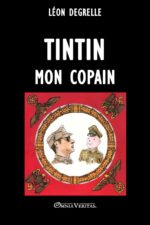Having promised a peace without annexations or indemnities, they deprived Germany of territory and imposed a crushing reparations burden on the newly established Weimar Republic. Having promised general disarmament they disarmed Germany without disarming themselves. The victors refused even to discuss the terms of peace with the vanquished who had surrendered on stated conditions which were not fulfilled, and in general discredited democracy in German eyes by associating it with broken pledges, national humiliation, and economic distress.
The Nazi movement, born from the dragon seeds planted at Versailles, and brought to monstrous growth by the world depression which raised the total number of unemployed in Germany to six million, took power at the moment of Europe’s and America’s greatest economic crisis. Inevitably, the Second World War followed the first after an interval of only twenty years.














